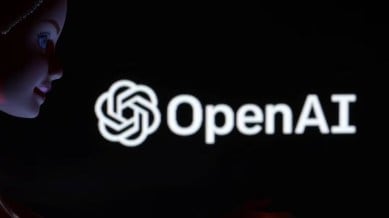Technology on smartphone reviews, in-depth reports on privacy and security, AI, and more. We aim to simplify the most complex developments and make them succinct and accessible for tech enthusiasts and all readers. Stay updated with our daily news stories, monthly gadget roundups, and special reports and features that explore the vast possibilities of AI, consumer tech, quantum computing, etc.on smartphone reviews, in-depth reports on privacy and security, AI, and more. We aim to simplify the most complex developments and make them succinct and accessible for tech enthusiasts and all readers. Stay updated with our daily news stories, monthly gadget roundups, and special reports and features that explore the vast possibilities of AI, consumer tech, quantum computing, etc.
OpenAI fires back at NYT copying allegations, calls claims ‘without merit’
At the same time, OpenAI is "hopeful" for partnership with the publication despite legal feud.

OpenAI has publicly responded to a copyright lawsuit filed by The New York Times, calling the case “without merit” and alleging that the publication “intentionally manipulated” its chatbot to regurgitate entire lines from its articles. At the same time, OpenAI also expressed hope to still partner with the media outlet.
monthly limit of free stories.
with an Express account.
“Even when using such prompts, our models don’t typically behave the way The New York Times insinuates, which suggests they either instructed the model to regurgitate or cherry-picked their examples from many attempts,” OpenAI wrote. “Interestingly, the regurgitations The New York Times induced appear to be from year-old articles that have proliferated on multiple third-party websites.”
OpenAI argued it has actively worked to reduce verbatim reproduction in its large language models. It also claimed the Times refused to provide specific examples of this alleged copying before filing its lawsuit last month.
“We aim to learn, educate, listen to feedback, and adapt,” the company said, noting it has met with dozens of news outlets and industry groups to address concerns. “Memorization is a rare failure of the learning process that we are continually making progress on.”
However, OpenAI maintained its long-held stance that broad access to aggregate human knowledge is essential for AI to learn and solve new problems. While respecting copyright law and offering opt-outs from training data, the company still believes scraping websites for data constitutes fair use enabling transformative AI applications.
Last August, OpenAI announced website owners could start blocking its web crawlers in 2023, nearly a year after ChatGPT’s launch.
Discussions with the Times had seemed constructive until the lawsuit was filed on December 27, OpenAI claimed. It said negotiations focused on a mutually beneficial partnership integrating Times content into ChatGPT with proper attribution.
“Their lawsuit on December 27—which we learned about by reading The New York Times—came as a surprise and disappointment to us,” the company stated.
Though the Times had previously mentioned issues with regurgitation, OpenAI said the newspaper repeatedly declined to provide examples for investigation despite OpenAI’s commitment to address problems.
“We regard The New York Times’ lawsuit to be without merit. Still, we are hopeful for a constructive partnership with The New York Times and respect its long history, which includes reporting the first working neural network over 60 years ago and championing First Amendment freedoms,” OpenAI concluded.